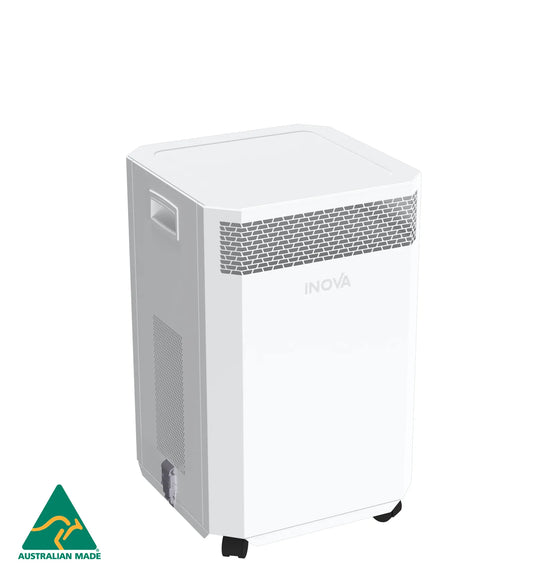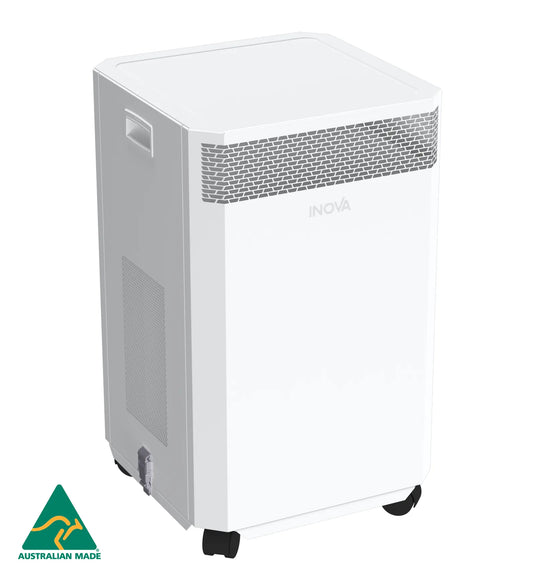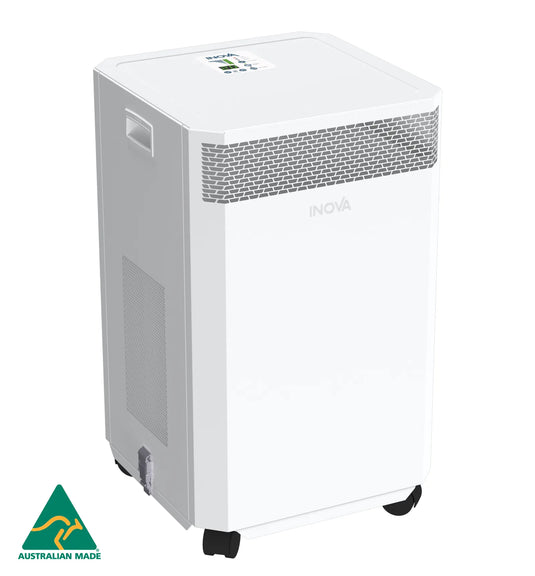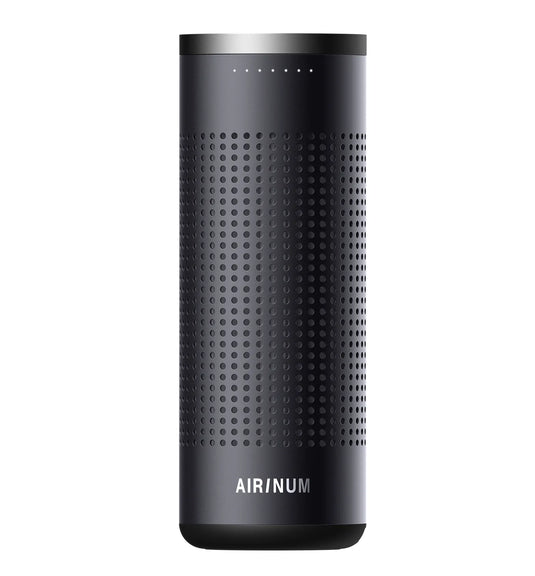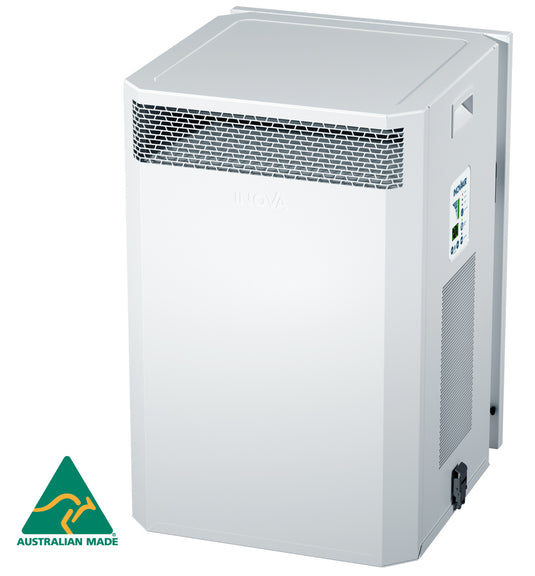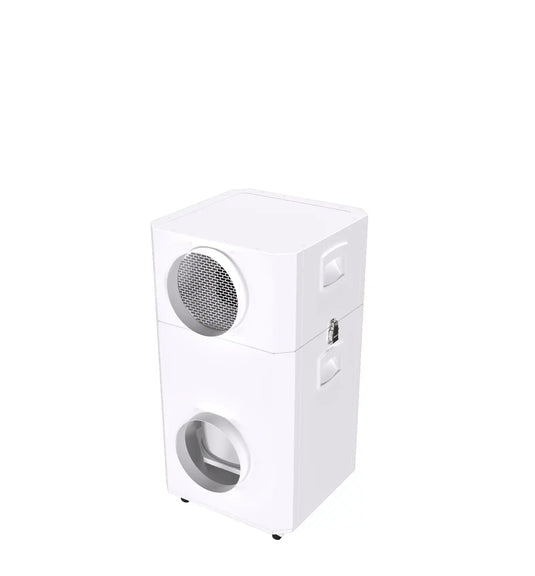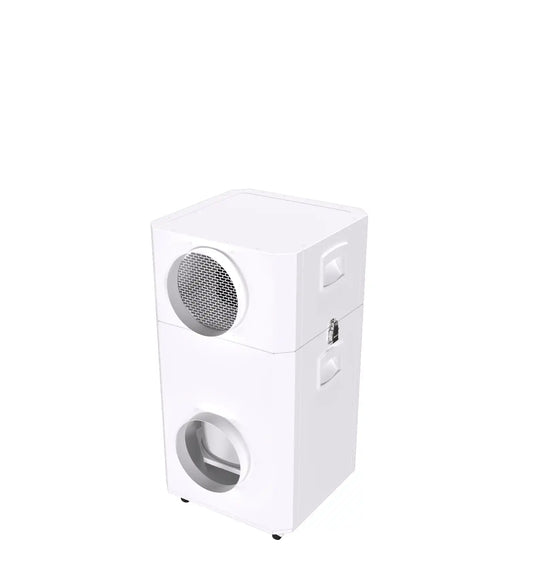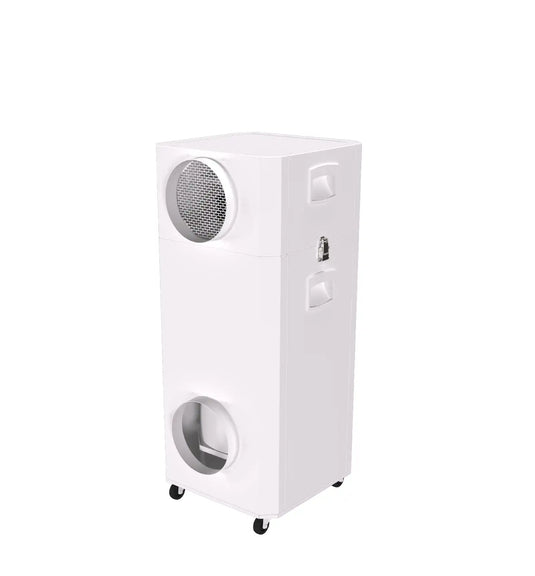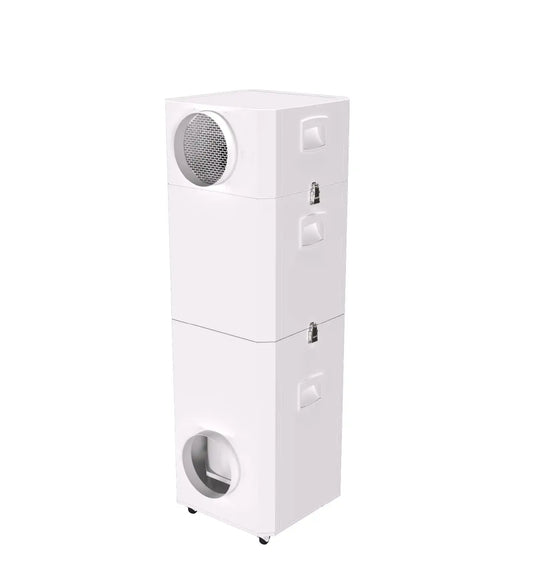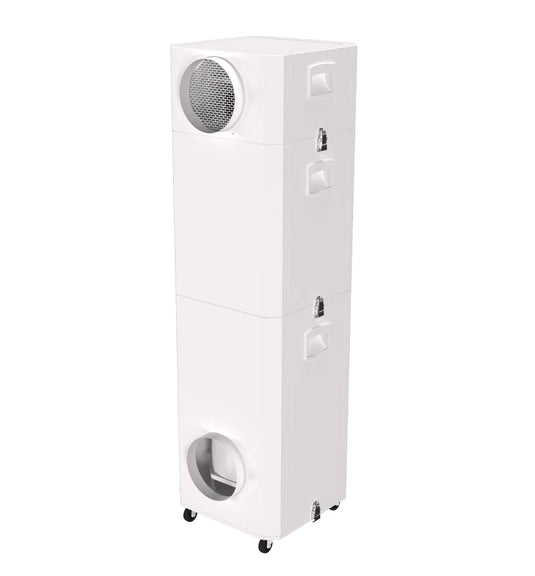Don't Be Fooled Into Buying Lower Efficiency HEPA Type Air Purifiers
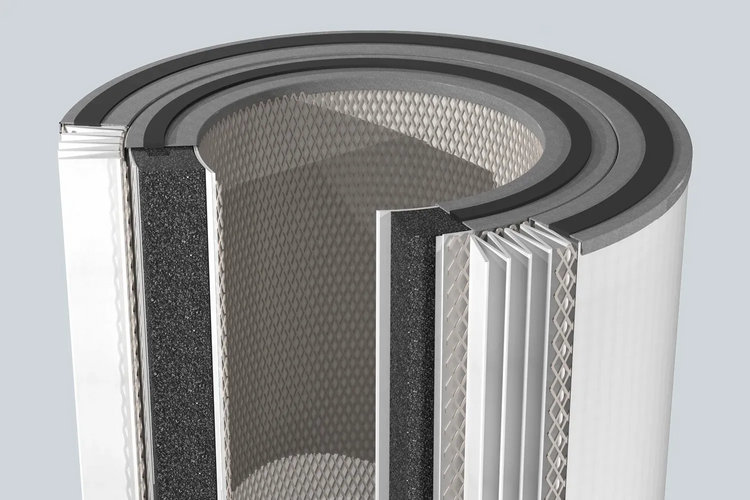
When shopping for an air purifier, one of the most important components to consider is the HEPA (High-Efficiency Particulate Air) filter. It’s the part responsible for capturing the harmful particles we don’t want to breathe in—like dust, pollen, smoke, and even bacteria or viruses. But not all HEPA filters are created equal.
Two common materials used in HEPA filters are polypropylene (a type of plastic) and glass fibre paper. While both are used to trap particles, they work very differently — and the differences matter a lot when it comes to your health, safety, and the long-term performance of your air purifier.
The Problems with Polypropylene HEPA Filters
Polypropylene (PP) filters are widely used because they're cheap and easy to produce. However, they come with a few major downsides:
-
They Rely on Static Electricity
Polypropylene filters don't trap particles just by blocking them physically — they depend heavily on static charge to attract and hold particles like a magnet. This works well initially, but there's a catch...
Over time, the static charge weakens — especially in humid environments. Once that happens, the filter loses a large part of its ability to trap fine particles like smoke or allergens. That means your air purifier could stop working effectively, even though the filter looks clean.
-
They Lose Efficiency Without Warning
Because these filters don't show visible signs of wear, it's hard to tell when they're no longer working. You might still be running your air purifier, thinking you're breathing clean air — when in reality, it's doing very little.
-
Performance Drops in Moisture or Heat
Polypropylene is plastic-based, and plastic materials don’t hold up well in heat or humidity. This makes them a poor choice for homes in warmer climates or for people using humidifiers. The loss of static charge in such conditions can cause a sudden drop in filtration performance.
Why Glass Fibre Paper is a Superior HEPA Material
Glass paper HEPA filters, on the other hand, offer several advantages — and they’re the material of choice in hospitals, cleanrooms, and other critical environments.
-
True Mechanical Filtration
Unlike polypropylene, glass fibre filters trap particles using a fine maze of fibres, catching particles as air flows through. There’s no reliance on static charge, so performance stays consistent over time — no matter the humidity, temperature, or age of the filter.
-
Higher Long-Term Efficiency
Because glass fibre filters work based on physical structure, they maintain their filtering power over months of use. They consistently capture even the smallest harmful particles (like PM2.5 and viruses) with very high efficiency — even when they start to get dirty.
-
Proven in Medical and Industrial Settings
Glass HEPA filters are trusted in environments where air purity is critical. If it’s good enough for an operating room or a semiconductor factory, it’s definitely good enough for your living room.
What This Means for Your Air Purifier
When choosing an air purifier, always check what kind of HEPA filter it uses. A "HEPA-type" or "HEPA-like" filter made from polypropylene may work adequately at first, but it may not provide long-term protection.
If you're serious about clean air — for allergy relief, smoke protection, or virus defence — go for a purifier with a medical-grade H13 glass fibre HEPA filter. It might cost a bit more upfront, but you’ll get more reliable, longer-lasting protection.
Only Genuine Glass Fibre HEPA Delivers True Clean Air
Some air purifiers advertise “H13” or “True HEPA” filters without revealing the material inside. Always look deeper — the material matters as much as the rating. Ask for glass fibre HEPA to ensure you're getting the highest removal efficiency
Click here to see the full range of INOVA home and office air purifiers with genuine glass paper HEPA filters.

